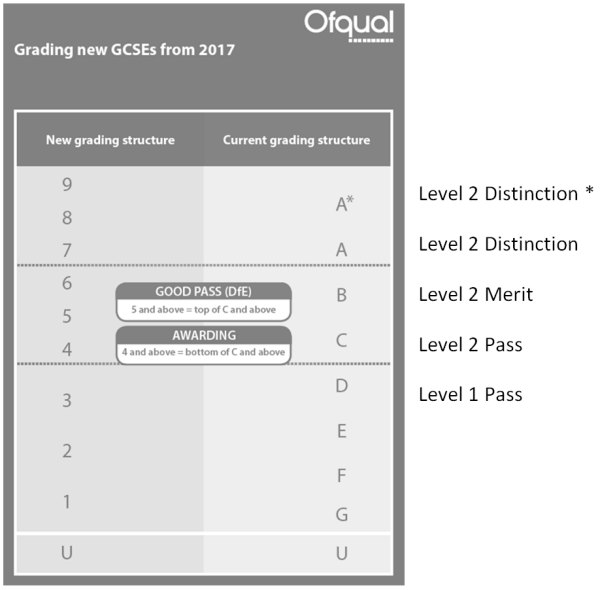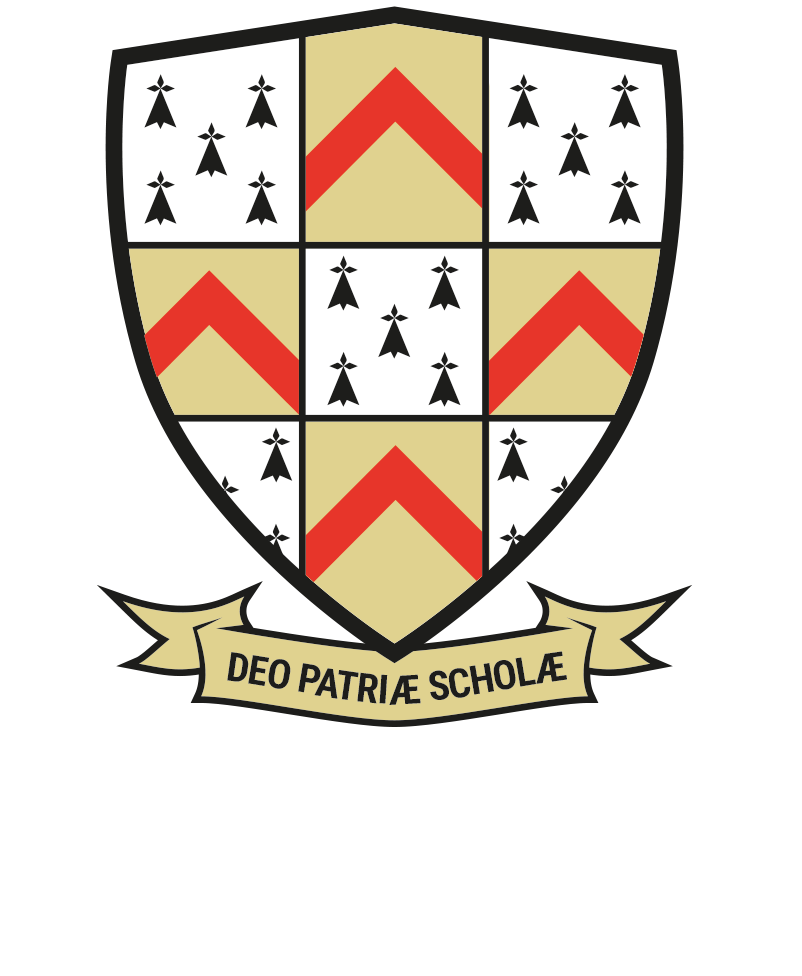FAQs
Frequently Asked Questions
This webpage contains information about the subjects we hope to offer in Years 10 and 11; it also explains some of the choices and decisions which students will be making with guidance from parents and teachers and why it is important to consider carefully choices of subjects at this stage.
One of the floor standards for schools is a measure of average attainment across 8 subjects. An adaptation of this is used to obtain the minimum entry requirements for admission to the Sixth Form at King Edward VI School, Lichfield. As well as meeting the specific subject entry requirements all students need to gain a minimum of 33 points from their 7 best GCSE results, which must include English and Mathematics at Grade 4 or above. However, all students will be working towards an individual set of agreed targets across their subjects to maximise their potential.
Recently revised features of assessment, due to changes in national policies include:
- All GCSE courses are now examined in May/June of Year 11
- All GCSEs are graded from 9 to 1
- For students completing GCSEs in English Literature, Geography, History and Religious Studies, external assessments now include additional marks for Spelling, Punctuation and Grammar
One of the performance measures used by the Government is the English Baccalaureate (EBacc). This is not an overarching qualification and does not currently lead to a certificate.
Students need to obtain GCSE 9 – 4 passes in:
- English Language and/or English Literature (and be entered for both)
- Mathematics
- Two Sciences
- History or Geography
- A Modern Foreign Language
Students wishing to go on to A Levels and University should consider their range of subjects carefully. However, there is no requirement from universities for the English Baccalaureate.
Students are encouraged to take a balanced range of subjects and although we might encourage the Baccalaureate in some cases, students are not directed by the school towards this.
Attainment 8 and Progress 8 are two measures used by the government to ascertain school performance. The one is a measure of average student attainment across eight subjects: English, Mathematics, three other EBacc subjects and three further subjects from a range of approved qualifications. Progress 8 is similar but an average of progress as oppose to attainment.

The Education and Skills Act 2008 states that young people are required to continue in education or training until their eighteenth birthday.
This does not mean young people must stay in school; they can choose one of the following options:
- Full-time education, such as school, college or home education
- Work-based learning, such as an Apprenticeship
- Part-time education or training if they are employed, self-employed or volunteering for more than twenty hours a week
With a wider range of courses it is useful to think of courses as Level 1 or Level 2.
- Level 1 is equivalent to 1 – 3 Grade at GCSE
- Level 2 is equivalent to 4 – 9 Grade at GCSE
- Level 3 is equivalent to AS/A Level standard
GCSE stands for ‘General Certificate of Secondary Education’.
Students will receive more information about GCSE examinations as they go through Key Stage 4 courses. Some, but very few subjects will include Controlled Assessment; this is work completed during Years 10 and 11, which will count towards the final examination result.
For a small number of students, the school may decide to enter them for an ‘Entry Level Qualification’ in one or more subjects, usually as well as but sometimes instead of GCSE. An Entry Level Qualification is a widely recognised qualification which has been specially designed to meet the needs of and to reward those students who may be finding difficulties with certain aspects of the GCSE course. It allows staff greater flexibility in choosing key focus areas and can, therefore, make the course much more rewarding for students. Parents are kept informed about the details of such entries.
Controlled Assessment or NEA is work completed during the course that contributes to the final grade. The controlled part of the assessment is intended to ensure the validity and reliability of coursework and to enable assessors to confidently authenticate candidates’ work. Controlled Assessment is designed to take place within the normal teaching timetable, for example in the classroom, lab or workshop.
Excellent attendance at school is vital throughout Years 10 and 11. It is especially important during periods of controlled assessment. Whilst every effort would be made to help your child catch up, depending on the nature of the task set and the degree of supervision needed, it may not be possible to make up the time. Further information will be made available if necessary.
These are all vocational courses. Students learn by completing projects and assignments that are based on realistic workplace situations, activities and demands. It introduces students to the employment area they have chosen and provides a good basis to go on to a more advanced work-related qualification. Although the courses are largely coursework based, all courses contain examinations at the end of the course.
- Attend the subject presentations on the 21st January 2025
- See the presentations on the relevant pages
- Ask the Head of Department or your class teacher
- ASK QUESTIONS! If in doubt your tutor can help you find the person you need
- Heads of Department and subject teachers can give detailed advice about individual courses. Each subject page provides the name of a member of staff to contact
- Mrs M Jennings (Achievement Leader)
- Mrs K Pemberton (Head of Learning Support)
- Mr P Cotton (Deputy Headteacher)
Do choose a course because:
- You are good at it and think you will enjoy the subject
- It links to a career idea
- It will go well with your other choices
- It will help you develop knowledge and skills that interest you
- You think that you might want to continue studying it after Year 11
- Your research shows that it will interest you and motivate you
Don’t choose a course just because:
- Your friends have chosen it (you may not be in the same group)
- Someone else thinks it’s a good idea (you need to have a commitment to it)
- You like the teacher you have now (you may not have the same teacher)
Most subjects at Key Stage 4 will build on previous study of the same subjects. There are, however, some courses which are new, offering subjects which have not been available in Years 7 – 9 (e.g. Child Development, Health and Social Care, Engineering Manufacture, Business, Media Studies or Computing). You may wish to consider one or more of these, but you need to be sure that you know what is involved. Just because it is new does not mean that it will be any easier! If you’re not sure then talk to a teacher of the subject concerned and ask for advice. You may also opt for a taster session in these subjects.
Yes. There are some subjects which you can take at Advanced Level which you don’t have to have done before. These include Business, Economics, Psychology and Sociology. There may be other exceptional circumstances but, in most cases, students will be expected to have a qualification in the subject before selecting it for study at Advanced Level. If in doubt seek further advice from a teacher of the subject concerned.
There is no need to worry at this stage if you don’t yet have a career in mind. If you have no career plans it is wise to choose courses which keep open as many opportunities as possible. Simply remember that it is most important to achieve a good balance in the subjects chosen. Future employers will look for a person who is flexible and adaptable to changing situations.
Careers Guidance is available to all students; individual students and parents can request additional careers support at any time where this is felt to be necessary.
Ask yourself:
- Which subjects are most important for me at this stage?
- Is my proposed choice of subjects a well-balanced one?
- If my career aim changes, will my subject choice still be suitable?
- Does my choice of subjects close any career path which I may wish to follow?
- Am I likely to change my ideas as I grow older?
Students are using the ‘Which Way Now?’ materials and Kudos website in school and you can also click through any of the links below to access further materials:
- National Careers Service - Advice and guidance to help you make decisions on learning, training and work
- My World of Work – Advice on choosing subjects at GCSE with a view to pursuing a particular career in the future
- Career Pilot – Gives case studies and information about entry requirements for a range of jobs in different sectors
It is possible that not all courses listed will run. It is also possible that a certain combination may prove impossible. A minimum number of students are required to make a teaching group viable and some groups are limited to a maximum number which is determined by the availability of equipment or by safety considerations. With this in mind it is important that you not only consider the subjects you want to study but have some reserves in mind. We will try our best to support all students in gaining places on suitable courses.

BTECs are graded in terms of Distinction, Merit and Pass. See above for how they fit with the new grading structure.

